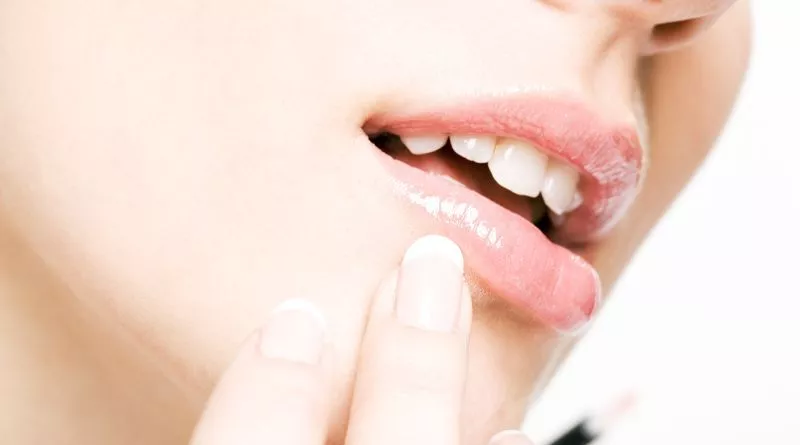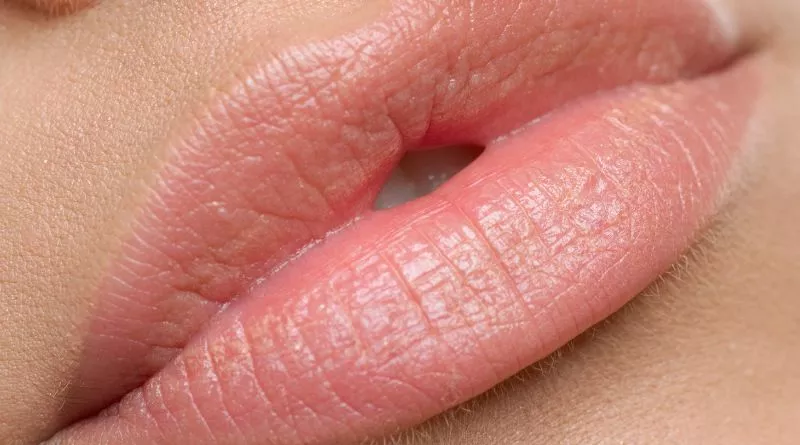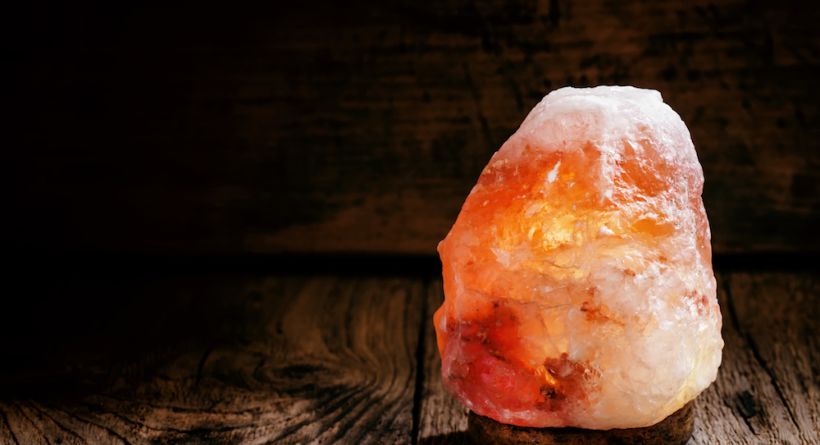Our lips are among the most sensitive and delicate parts of our body. Despite their importance in daily functions such as speaking, eating, and expressing emotions, lips are often neglected when it comes to skincare.
They don’t have oil glands like the rest of our skin, making them more vulnerable to dryness and damage.
The lips can often be the first to show signs of dehydration, chapping, cracking, or peeling, especially when exposed to environmental factors such as cold weather, wind, or the sun.
In this ultimate guide to lip care, we’ll explore effective tips and practices for maintaining soft, hydrated, and healthy lips.
From exfoliation and hydration to choosing the right products, we’ve got all the expert advice you need. Let’s dive into the specifics of keeping your lips in top shape.
Why Lip Care Matters: The Science Behind Dry Lips
To understand how to care for your lips effectively, it helps to know why lips are so prone to dryness.
The skin on your lips is thinner than the skin on other parts of your body, making it more susceptible to external damage.
Lips also lack sebaceous glands, which are responsible for producing natural oils that keep the skin moisturized.
This means they rely heavily on external sources for hydration and protection.
Without proper care, your lips can become dry, chapped, or cracked. In severe cases, damaged lips may even bleed or become infected.
To avoid these issues, it’s essential to adopt a comprehensive lip care routine that addresses moisture, protection, and nourishment.
Exfoliate Your Lips: The First Step to Smooth Lips

Why Exfoliation is Crucial
Exfoliating your lips is the foundation of any effective lip care routine. Just like the rest of your skin, lips accumulate dead skin cells, which can lead to a dry and flaky appearance.
These dead skin cells can also create a barrier that prevents moisturizers from being absorbed properly.
Exfoliating your lips once or twice a week can help remove this layer of dead cells, revealing fresh, smooth skin underneath.
Not only does this make your lips feel softer, but it also prepares them to absorb moisture more effectively.
How to Exfoliate Lips Safely
To exfoliate your lips, you don’t need fancy products—a simple DIY scrub can do the trick. You can make your own exfoliating scrub using household ingredients like sugar and honey. Here’s a quick recipe:
- Ingredients:
- 1 tablespoon of sugar (as the exfoliant)
- 1 teaspoon of honey (for moisture and nourishment)
Mix these ingredients together to create a natural, gentle scrub. Gently rub the mixture onto your lips using circular motions for about one minute.
Afterward, rinse with lukewarm water and pat dry with a soft cloth. Always follow up with a nourishing lip balm to lock in moisture.
Professional Lip Scrubs
If DIY isn’t your thing, there are plenty of professional lip scrubs available that contain ingredients like sugar, sea salt, or even fine grains to exfoliate your lips.
When purchasing a scrub, look for options that also contain hydrating agents, such as jojoba oil or shea butter, to avoid over-drying your lips.
Pro Tip: Avoid over-exfoliating, as this can lead to irritation or damage. If your lips are cracked or severely dry, hold off on exfoliating until they’ve healed.
Hydrate Your Lips: Moisture is Key
Why Hydration Matters
Hydration is at the heart of keeping your lips soft and smooth.
When lips lose moisture, they become dry, tight, and prone to cracking.
To avoid this, it’s essential to hydrate your lips both externally (using moisturizers) and internally (by staying hydrated).
External Hydration: Lip Balms and Oils
One of the simplest and most effective ways to keep your lips hydrated is by applying a good-quality lip balm.
Look for lip balms that contain hydrating ingredients such as:
- Shea Butter: Known for its deeply moisturizing properties.
- Cocoa Butter: Helps nourish and protect the lips.
- Coconut Oil: Offers intense hydration and a natural barrier against dryness.
- Beeswax: Helps create a protective layer on the skin to lock in moisture.
Lip balms work by creating a barrier on the surface of your lips, preventing moisture loss and protecting them from external factors like wind and sun.
For an extra boost, consider using lip oils. Unlike balms, which sit on the surface of the skin, lip oils are absorbed more deeply and provide long-lasting hydration.
Oils like jojoba, argan, and almond oil are rich in essential fatty acids, which help repair and restore dry or damaged lips.
Internal Hydration: Drink Plenty of Water
Hydrating your lips also starts from within. When your body is dehydrated, your skin—including your lips—will become dry.
Drinking enough water is essential for maintaining hydrated, healthy skin, so aim for at least eight glasses of water a day.
Also Read: The Ultimate Guide to Choosing the Perfect Foundation for your Skin Type
Protect Your Lips: Shield Against Sun and Harsh Weather
Sun Protection: SPF for Your Lips
Your lips are just as susceptible to sun damage as the rest of your skin, but they’re often overlooked in sun protection routines. Prolonged exposure to UV rays can cause lips to become dry, sunburnt, or even increase the risk of skin cancer.
When choosing a lip balm, always opt for one with SPF 15 or higher to provide broad-spectrum protection against both UVA and UVB rays. Even when it’s cloudy, UV rays can penetrate and harm your lips, so apply SPF lip balm year-round.
Cold Weather Protection: Don’t Let Winter Ruin Your Lips
Cold, windy weather can be harsh on your lips, stripping away moisture and leaving them chapped and cracked.
During the winter months, it’s especially important to give your lips extra protection. Lip balms with ingredients like beeswax or lanolin are great for creating a protective barrier that shields your lips from the cold.
Also, consider using a scarf or face mask to cover your lips when you’re outside in particularly frigid conditions.
This will help protect your lips from the drying effects of cold air and wind.
Avoid Licking Your Lips: It may feel like a natural response when your lips are dry, but licking your lips only makes the problem worse. Saliva evaporates quickly, leaving your lips even more dehydrated than before.
Choose the Right Lip Products
Ingredients to Avoid
Not all lip products are created equal, and some can do more harm than good. Certain ingredients can actually dry out your lips or cause irritation over time.
Be on the lookout for products that contain:
- Alcohol: Can dry out the skin.
- Fragrance: Often irritates sensitive lips.
- Camphor or Menthol: While they may provide a cooling sensation, they can dry out your lips over time.
Hydrating and Soothing Ingredients
Instead, focus on lip products that are designed to hydrate and soothe. Ingredients like hyaluronic acid, ceramides, and glycerin are excellent choices for locking in moisture.
Aloe vera is another great ingredient, known for its calming and healing properties.
Lip Masks for Overnight Hydration
Lip masks have become increasingly popular, and for a good reason. They’re packed with nourishing ingredients and are designed to deeply moisturize your lips while you sleep.
For those who struggle with chronic dryness, applying a lip mask before bed can work wonders.
These masks often contain ingredients like squalane and vitamin E, which help repair and rejuvenate the delicate skin on your lips overnight.
Maintain a Healthy Diet for Lip Care
Eat Your Way to Healthy Lips
Your diet plays a significant role in the health of your skin, and your lips are no exception.
A balanced diet rich in vitamins and minerals will promote lip health and help prevent dryness.
- Vitamin E: Found in foods like almonds, sunflower seeds, and avocados, vitamin E helps protect and repair skin.
- Vitamin C: This essential vitamin supports collagen production, which is vital for keeping your lips plump and firm. Eat citrus fruits, strawberries, and bell peppers to boost your intake.
- Omega-3 Fatty Acids: Found in fish, flaxseeds, and walnuts, these fatty acids help maintain your skin’s lipid barrier, preventing moisture loss.
Hydrating Foods
In addition to drinking water, you can boost your hydration by eating water-rich foods like cucumbers, watermelon, and leafy greens.
These foods not only hydrate your body but also contribute to overall skin health, including your lips.
Take Care of Your Lips Overnight
While you sleep, your skin works to repair itself, making nighttime an ideal time to nourish your lips.
Before bed, apply a thick layer of lip balm or lip mask to lock in moisture and repair any damage.
Using a humidifier in your room can also help keep the air moist, preventing your lips from drying out overnight.
Common Lip Care Mistakes
Licking Your Lips
As mentioned earlier, licking your lips may seem like a quick fix when they’re dry, but it actually exacerbates the problem.
Saliva evaporates quickly and leaves your lips even drier than before.
Using Expired Lip Products
Old lip products, like expired balms or lipsticks, can harbor bacteria and lose their effectiveness.
Be sure to replace your lip products regularly to avoid irritation or infection.
Also Read: The Dos and Don’ts of Contouring and Highlighting
Conclusion
Taking care of your lips is essential for keeping them soft, smooth, and healthy.
Exfoliate your lips, hydrate them with lip balm or oil, protect them from the sun and cold weather, choose the right lip products, maintain a healthy diet, and take care of them overnight.
With these tips and tricks, you can keep your lips in top condition and prevent dryness, cracking, and peeling.
FAQs About Lip Care
Q: How often should I exfoliate my lips?
A: Exfoliating once or twice a week is ideal for removing dead skin cells. Over-exfoliating can irritate your lips, especially if they are already dry or cracked.
Q: Can I use regular moisturizer on my lips?
A: While regular moisturizers can offer some hydration, lip balms and oils are formulated specifically for the delicate skin on your lips, providing longer-lasting moisture.
Q: Should I use lip balm with SPF even when it’s not sunny?
A: Yes, UV rays can penetrate through clouds and cause damage to your lips. Use SPF lip balm all year round to protect your lips from sun damage.
Q: Can I use petroleum jelly on my lips?
A: Petroleum jelly can provide a barrier that locks in moisture, but it doesn’t hydrate lips on its own. It’s best used in combination with hydrating lip balms.
Q: What’s the best time to apply lip balm?
A: Applying lip balm before bed allows it to work overnight, giving your lips time to absorb moisture and repair damage.


